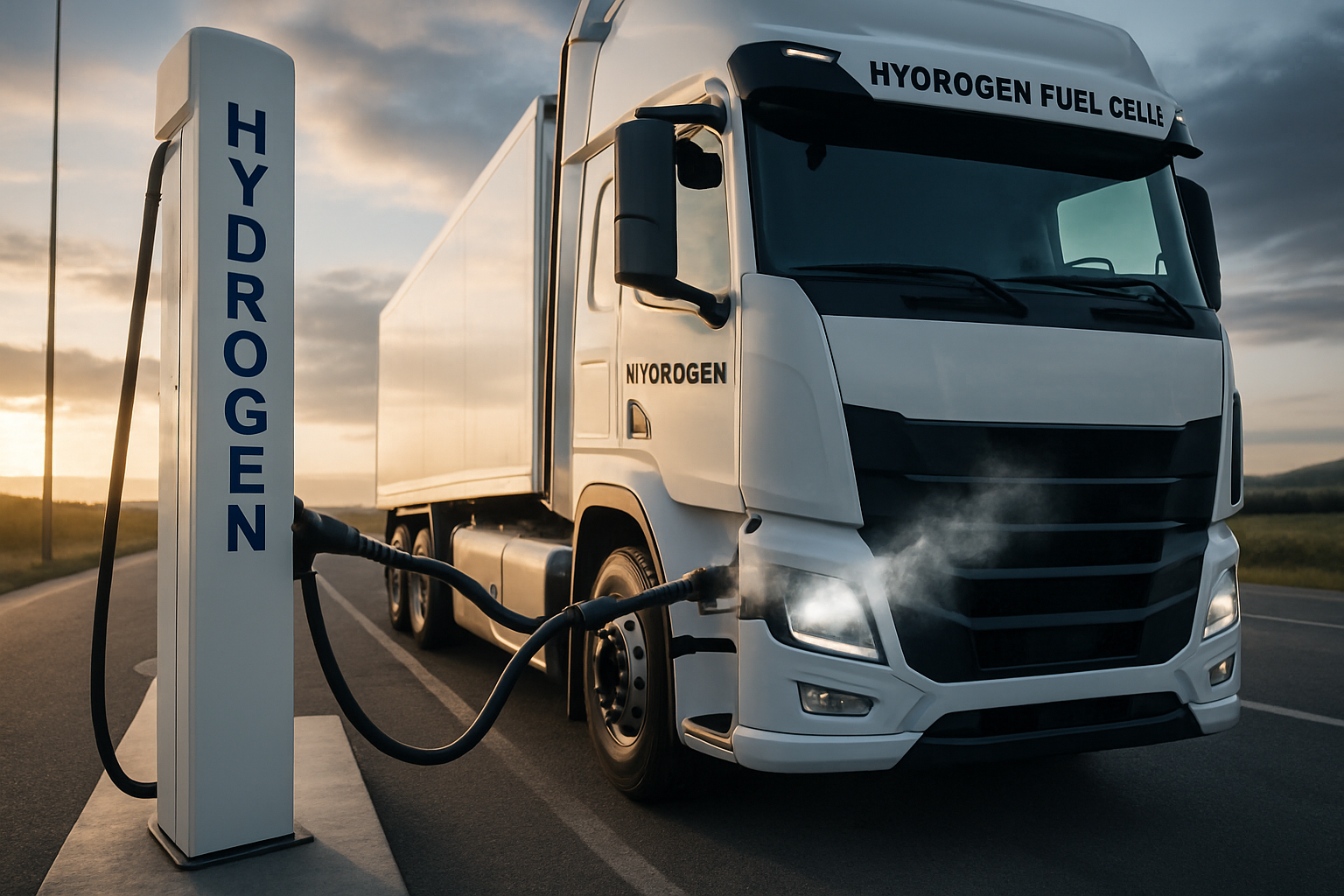Hydrogen Fuel Cells: The Quiet Revolution in Heavy-Duty Transport
Fueling the future of long-haul trucking and industrial vehicles, hydrogen fuel cells are emerging as a game-changing technology in the heavy-duty transport sector. This innovative power source promises to combine the range and refueling speed of traditional diesel engines with zero-emission operation, potentially reshaping the landscape of commercial transportation. As the world grapples with the urgent need to reduce carbon emissions, could hydrogen fuel cells be the key to greening our highways and industrial corridors?

The Heavy-Duty Advantage
The heavy-duty transport sector, encompassing long-haul trucks, buses, and industrial vehicles, presents unique challenges when it comes to electrification. Battery electric solutions, while effective for passenger vehicles, often fall short in meeting the demanding range and payload requirements of commercial transport. This is where hydrogen fuel cells shine. They offer several distinct advantages that make them particularly well-suited for heavy-duty applications.
Range and Refueling: Matching Diesel Performance
One of the most significant benefits of hydrogen fuel cells in heavy-duty transport is their ability to match or exceed the range of traditional diesel engines. A hydrogen fuel cell truck can potentially cover 500-600 miles on a single tank, rivaling the range of diesel trucks. Moreover, refueling a hydrogen vehicle takes only minutes, comparable to filling up a diesel tank. This quick turnaround is crucial for commercial operations where time is money, and long charging times can significantly impact productivity.
Payload Preservation: Maintaining Cargo Capacity
Weight is a critical factor in commercial transport, where every pound of vehicle weight translates to a pound less in cargo capacity. Hydrogen fuel cell systems, while not lightweight, offer a significant advantage over battery-electric alternatives in this regard. The energy density of hydrogen means that fuel cell vehicles can achieve long ranges without the massive battery packs required in pure electric vehicles. This allows hydrogen-powered trucks to maintain payload capacities more in line with their diesel counterparts, a crucial consideration for freight companies.
Infrastructure Challenges and Solutions
Despite its promise, the widespread adoption of hydrogen fuel cell technology in heavy-duty transport faces significant hurdles, chief among them being the lack of refueling infrastructure. Unlike the ubiquitous network of gas stations, hydrogen fueling stations are few and far between. However, this chicken-and-egg problem is gradually being addressed through strategic infrastructure planning. Initiatives are underway to create hydrogen corridors along major trucking routes, starting with key logistics hubs and gradually expanding outward.
The Role of Green Hydrogen in Sustainability
For hydrogen fuel cells to truly deliver on their promise of clean transportation, the hydrogen itself must be produced sustainably. Currently, most hydrogen is derived from natural gas through a process that emits significant amounts of CO2. However, the concept of green hydrogen – produced through electrolysis powered by renewable energy – is gaining traction. As renewable energy becomes more prevalent and electrolysis technology improves, the production of truly zero-emission hydrogen becomes increasingly feasible, further enhancing the environmental credentials of fuel cell vehicles.
Economic Considerations and Total Cost of Ownership
While the initial cost of hydrogen fuel cell vehicles remains high, proponents argue that the total cost of ownership over the vehicle’s lifetime can be competitive with traditional diesel trucks. Factors such as lower maintenance requirements (due to fewer moving parts), potential fuel cost savings (as hydrogen production scales up), and longer vehicle lifespans all contribute to a potentially favorable economic equation. Additionally, as more countries implement stringent emissions regulations and carbon pricing, the economic calculus increasingly tilts in favor of zero-emission technologies like hydrogen fuel cells.
The Path Forward: Collaboration and Innovation
The successful integration of hydrogen fuel cells into the heavy-duty transport sector requires a coordinated effort from multiple stakeholders. Vehicle manufacturers, energy companies, policymakers, and end-users must work in concert to overcome technical, infrastructural, and economic challenges. Ongoing research and development efforts are focusing on improving fuel cell efficiency, reducing production costs, and enhancing durability. Pilot projects involving major logistics companies are providing valuable real-world data, helping to refine the technology and build confidence in its viability.
As we stand on the cusp of a potential revolution in heavy-duty transport, hydrogen fuel cells offer a compelling vision of a cleaner, more sustainable future. While challenges remain, the unique advantages of this technology in addressing the specific needs of long-haul trucking and industrial vehicles make it a key player in the quest to decarbonize our roads. As innovation continues and infrastructure expands, we may soon see hydrogen-powered trucks becoming a common sight on highways, silently and cleanly powering the backbone of our global economy.






